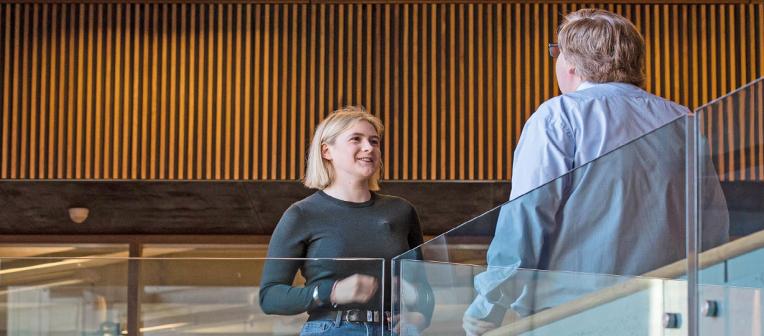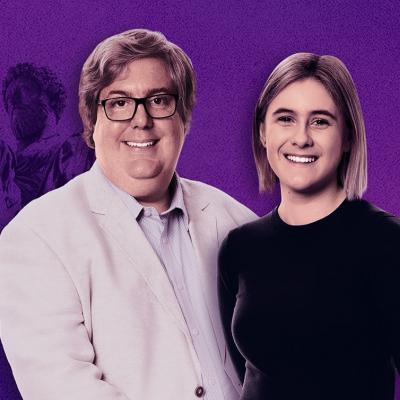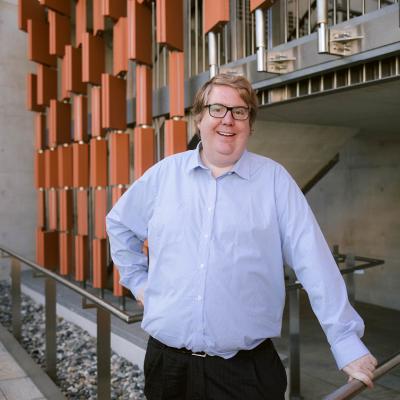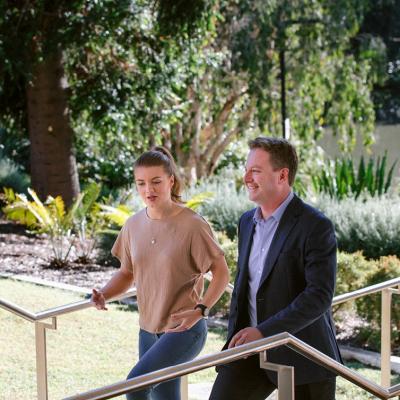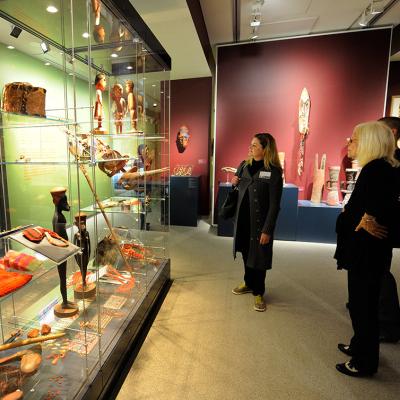Considering studying arts and humanities at university? You may have lots of questions. We're here to help you find answers.
- What is the study of humanities?
- Why do we study the humanities?
- What kind of job can I get with an advanced humanities degree?
We've interviewed a UQ student and academic to find out. Amelia is studying the Bachelor of Advanced Humanities (Honours), and Professor Alastair Blanshard is a lecturer in western civilisation. They’ve teamed up to answer some of your questions and uncover how UQ can give you the skills you need to face the future, even when you don't know exactly what the future will look like.
Let's find out if advanced humanities sounds like the study area for you.
What are some of the coolest jobs your former students are doing?
Alastair: My students have ended up in all sorts of exciting and interesting places. Two of the most exciting are the museum sector where they’re putting together exhibitions and explaining things to people. There’s also another former student who's a filmmaker, producing films based on the stories and ideas they’ve encountered.
What has been the most unexpected thing you have been happy to discover at UQ?
Amelia: Probably how helpful the university is. I came into uni expecting it to be really difficult and a very solitary experience. People told me you were alone and you had to fend for yourself, but there's so many resources and people there to help you. People actually do care.
What opportunities do your students have to get hands-on experience in our industry?
Alastair: Our students go and do a number of placements. At the moment we've got students working with the non-profit sector, doing interesting research projects on Indigenous knowledge, reconciliation and different community social problems, including homelessness. The ideas that these students are encountering are preparing them to go into all sorts of different areas.
What does a day in the life of a western civilisation student look like?
Amelia: I catch the bus to uni - I try to get there a little bit early, you never know what's going to pop up. Then I go to a lecture, after that I normally have a few hours break so I spend that in the library or at a cafe.
How do you prepare students for the future when we don’t know what the future looks like?
Alastair: The world is constantly changing – we don't know what the jobs of the future are going to be. All evidence seems to show that you will have 17 jobs during your life and 5 different careers. So the answer is really skills, and we think the important skills for the future are going to be the ability to communicate and express ideas clearly and the ability to come up with innovative original solutions. So a combination of research skills and communication skills are going to be really important ones for the future.
I guess the other thing is, having the kind of historical perspective that we provide is really crucial. So the perspective that reading a text from the past gives you, we think is going to be really important. It's that ability to draw upon the wealth of knowledge and experience that has been occurring over the centuries.
What are the most valuable skills you’ve learned as part of your degree?
Amelia: One that stands out is the way that reading a text can echo to a contemporary readership. So I'm the reader in the present, but I'm engaging with a story that was written thousands of years ago, and then seeing how that relates to me today. The issues, the attitudes and the values that I have, can be found in the text that I'm reading and it's really interesting to connect the past with the present and understand how we came to be.
Alastair: Those stories still echo through to us today and that's what's so interesting about them and we're struggling with the legacy, I think, for good and for ill.
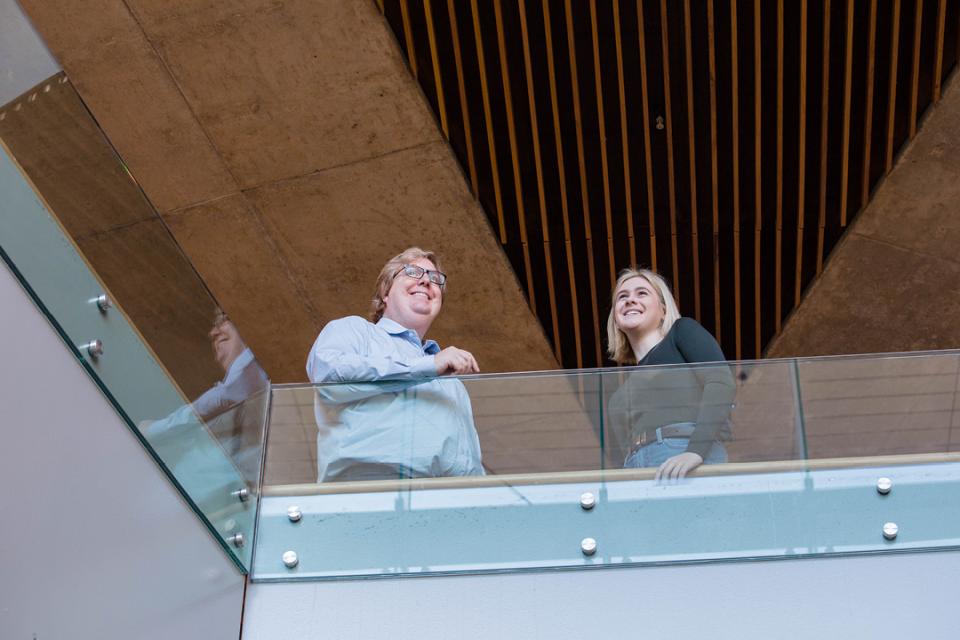
If you’re employing the next western civilisation graduate, what would you be looking for?
Alastair: With a western civilisation graduate, what you're getting is someone with a breadth of knowledge. They've encountered texts about philosophical and historical literature from all sorts of different ages and all sorts of different people. They've been thinking about how those texts speak to contemporary problems and how they help us think through some really wicked issues that we're being confronted with today. It's that ability to draw upon a wealth of knowledge, as well as being able to apply it in a critical manner that really defines a western civilisation student.
What have you learned about yourself since you began your studies at UQ?
Amelia: I'm just coming up to the end of my first semester. In that relatively short amount of time, I have learned a lot. I feel more confident than when I first started. If I look back, I was really scared that I wouldn't be able to do what university asked of me. I've learned that I actually can do what they ask and I feel more competent and more able, and I actually enjoy being challenged more than I did at school.
If you could give me one piece of advice that would set me apart as a job candidate, what would it be?
Alastair: Make yourself original and be creative. The idea of madness is described as doing the same thing over and over again and expecting different results. If you're going to make a change, then you need to walk the path that other people aren’t walking and I think being original, distinctive and creative is the way to go.
How does the way you learn give you the skills you need to face the future?
Amelia: We do a lot of a lot of group work, a lot of discussion. I think that's key, especially in the Western Civilisation major. My peers and I are having lecturer-driven discussion where we're guiding ourselves through learning and listening to one another. I really enjoy listening to other people's thoughts and hearing what they have to say because I find that takes me further, to places that I wouldn't have gone if I was just thinking by myself.
Explore the Bachelor of Advanced Humanities (Honours) or discover what it's really like to study other programs at UQ.

